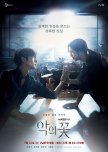
This review may contain spoilers
One of the Best Thrillers Out There!
This is a brilliant Korean thriller that will have you sitting on the edge of your seat—possibly literally! While it has very good writing, it’s the performances—especially from Lee Joon Gi (Do Hyun Soo) and Moon Chae Won (Cha Ji Won) that truly captivates the viewer. I am not sure I’ve seen two performers dig so deeply into their feelings and emotions, and I believe that a big reason for this is their obvious chemistry. If I didn’t know that these two were acting in a show, I’d have sworn that these two truly love each other. That is how believable they are. Now, I have seen other performances that come close, but these two may be the best I’ve ever seen in 45+ years of watching movies and shows. It also depicts the worst parents I have ever seen in all of my years. Man Woo Baek and Mi Ja Gong are unconscionable. I really don’t care if it’s their son. To knowingly help a man kill other people is absolutely no excuse. None. And I had absolutely zero sympathy for such deplorable people who turned out to be as monstrous and sick as their son.Do Hyun Soo is a man living with a horrific past. The son of a serial killer, Do Hyun Soo is diagnosed with Anti-Social Disorder. However, after reading up extensively on Anti-Social Disorder, I will argue that he is misdiagnosed. Given the lack of empathy, prone to violence, and especially substance abuse, Do Hyun Soo doesn’t really fit the bill. I believe that due an obvious lack of love, affection, and the ability to simply interact with others, he’s more like someone who has simply cut off that part of him that is capable of those feelings. That is, until something—or someone—provokes a response. He’s unable to identify various feelings, but that doesn’t mean that he doesn’t have them. It’s clear in his smile, his warmth, and also his love, that he’s more than capable of those feelings. He’s simply like a foreigner who can’t read or identify things. His character is captivating, harrowing, and heartbreaking. And the absolute anguish that he feels when he believes this Ji Won is dead, was raw, powerful, and conveyed everything I knew I would feel as well.
Now, the best thriller I’ve ever seen is “Stranger” which was a show a bit more taut and well-written than this one. It also deftly depicts a man who is incapable of empathy in Hwang Shi-Mok, and that actor gave a very real and stellar performance of such a person. And while Hwang Shi-Mok wasn’t diagnosed with Anti-Social Disorder, he’s much closer to being someone with that disorder than Do Hyun Soo. You really have to take into consideration the amount of abuse and trauma that Do Hyun Soo undergoes in his life to truly grasp what a person might be like coming out the other side of it.
Cha Ji Won may be my favorite female TV character of all-time. I’m not joking either. Now, it may be due to personal bias, because she encapsulates everything that a woman should be—to me, anyway. She’s strong, fiercely loyal, dependable, loving, compassionate, dedicated, and someone who is everything any man would ever want in a companion. I don't know how any sane man would ever let her go. My only issue with Ji Won is in how the writers depicted her as a police officer. Frankly, Doona Bae was far superior because she was smart, competent and held her own with anyone. Here, we find out that:
Ji Won is a terrible driver, allowing a cab driver to knock her car off the road by throwing the meter against her windshield?! Come on! Any seasoned cop would never react that way because they are trained to deal with those kinds of situations. Now, if she’d been forced off the road, that would have been believable.
Ji Won leaves a suspect alone. Now, she actually does get chewed out for that one, but it’s still a very big “rookie” mistake that someone like her isn’t likely to make.
Ji Won can’t remember Do Hae Soo despite meeting and speaking with her not long ago? Police officers are trained to remember faces. That one made no sense.
Ji Won is unable to secure a suspect. Another rookie mistake when she lets Yum Sang Chil escape and nearly kill her. Again, she doesn’t follow standard police protocol.
In episode 15, it made no sense that Ji Won wouldn't answer her phone. She knows her husband is out there and that he might try to contact her. This was another mistake on the writer's part in order to make the plot work.
I’ve said it before: never sacrifice character for the sake of the plot. The only big vice I have with the series is at the end of episode 13 when Ji Won suddenly suspects her husband of killing the housekeeper. Now, I understand that Do Hyun Soo doesn’t help his case by not telling her the truth, but Ji Won has already been through several of these scenarios, and she’s always realized that her husband isn’t capable of murder—until now? Plus, Ji Won never bothers to ask herself—what motive would Do Hyun Soo have to kill the housekeeper? None of it makes sense, and frankly, I felt deeply for Do Hyun Soo when he cries out in disbelief, “How do you not believe me? How do you not trust me?” Now, I know this was done to for the sake of the plot, but it was also a mistake because now you’re sacrificing character for plot. In other words, you’re making the character suddenly do something that goes against their character! For me, this is the only really glaring flaw of the series. “Stranger” and “My Name” had better scripts because they never deviated from or sacrificed character for the plot.
Now, the series is masterful in how it makes you suspect Do Hyun Soo for the first few episodes. You aren’t sure of what to make of him. This was genius! Then, you began to wonder, who is the “other accomplice” in the next set of episodes. And finally, you wonder how they are—not only going to catch the accomplice but do so where Do Hyun Soo is not only exonerated but can finally live a real life.
Outside of “24”’s Jack Bauer, I can’t think of another TV character who’s put through so much suffering and torment. Jack gives his all for his country, and Do Hyun Soo gives everything for his family. And perhaps that is also why I wasn’t entirely enamored with the ending. First of all, using the whole “killer grabs the policeman’s gun” ploy is a plot device that has been overused so many times in so many movies and shows, it should literally be retired and never used again! And I didn’t like the gimmick it used to suddenly rob Do Hyun Soo of his memory. How much more does this guy—and Cha Ji Won too!- -have to endure?! It felt like one step too many. However, the writers did their best to give us “hope” for Do Hyun Soo, that he might ultimately learn how to love his wife and daughter again. Except for Jim and Pam from "The Office" I don't think I ever cheered so hard for an on-screen couple more than these two!
This series is unforgettable. There’s no question that once you start, you can’t stop. It also has unforgettable songs and music—the track “Flower of Evil” is something that I’ve listened to so many times, that it’s literally in my head when I go to sleep. Don’t get me wrong. Despite the few issues that I have with this series, it’s still a great watch! And if I could ever personally meet Lee Joon Gi—and Moon Chae Won especially—I would give them my utmost thanks for giving us one of the best “couple” performances I’ve ever had the pleasure to watch. When they smile, you smile. And when they begin to shed tears, you can’t help shedding a few yourself. That is what true art as an actor is: making us feel what you feel. I will look for these two in future shows to watch!
Was this review helpful to you?
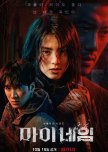
This review may contain spoilers
"Revenge is a Dish Best Served Cold" In One of the Best Mystery-Thrillers Ever Made!
I have been watching movies and show for over 45 years, and I MUST start off this review by stating that Han So-Hee’s performance as Ji Woo Yoon is one of the best I have ever seen from any actor or actress. If she hasn’t literally won every single acting accolade and award, then something is seriously wrong. Yes, her performance is that good, and it’s also a big reason why this series is so good, aside from the stellar writing, directing, cinematography, editing, and pretty much everything else. This is one of the best series I have ever had the privilege to watch.After watching mostly light-hearted K-Dramas over the past four or five years, this series is entirely different. It takes us deep inside the dank and dark underworld of Korean organized crime. A place ruled with an iron fist in Moo Jin Choi (another exceptional performance by Park See Soon). As with exceptional storytelling and one of the best thrillers ever made, we know the players, but we don’t know who is who and what is what. It plays like “24,” “The Departed” and a “Bronx Tale” all rolled into one with a bit of “The Professional” thrown in. The series is, indeed bigger than the sum of any of these parts. It is its own intriguing identity. And the writers do a terrific job keeping us on our toes. Just when you think you have figured something out, and another curveball is thrown our way to make think, “Okay, maybe that’s not it at all!”
Ji Woo Yoon devotes her life to seeking revenge upon the person who killed her father when she was in high school. Throwing herself into hand-to-hand combat training and learning how to use her wits, Ji Woo Yoon becomes what happens when someone is laser-focused on achieving their goal. She doesn’t smile. Her apartment is empty, except for her weight equipment, and her life is basically as empty and dark as the streets she patrols. She doesn’t engage in anything that takes her mind away from her ultimate job: to find and kill the killer. However, things are seldom as they seem, and despite her incredible tenacity—borderline obsession—smarts, and abilities, she’s not invincible or infallible. What is it like to watch someone with that kind of determination? I think of people like Bruce Lee or Kobe Bryant; people who will do whatever it takes to achieve a goal and not apologize for it. This is part of the intrigue of this series and also why Han So-Hee so deftly is able to give us this character and bring Ji Woo Yoon to life. I would be extremely curious about the training she must have had to go through. I have seen some amazing performances by Korean actors and actresses, but this one by Han So-Hee, just blew me away. When I looked at her profile on Mydramalist, I was like, “Wait, is that the same girl?!” A transformation from a beautiful model to a person you wouldn’t want to cross on your best day is something on par with Jodie Foster, Doona Bae, Helen Mirren, Cate Blanchett or Meryl Streep. Yes, I’m putting this performance of Han So-Hee on that kind of a level. I think it takes tremendous courage and dedication to turn in this kind of performance.
At only eight episodes, this series will make you feel like you’ve sat through sixteen or even twenty. You can’t help but watch the next episode after you’ve finished one, and by the time it’s all over, you might feel like you need a vacation or, at the very least, a few days to catch your breath.
I love movies that showcase strong female characters, and this one certainly achieves that. We need more characters like this one. Ji Woo Yoon is definitely not someone you’ve ever seen in most K-Dramas, and man, am I thrilled to death that they pulled no punches in this hardcore series. The violence is extreme, but there is no scene that doesn’t belong, no act that is out of place. It plays like a meticulous hard rock song that always pulls you in. I’m so glad that Netflix collaborated to bring this series to light as well as keep every element of the story intact. As far as mystery-thrillers go, you’ll be as hard-pressed as I am to find one that’s better. I can only think of two off the top of my head: The movies “Seven” and “Silence of the Lambs.” And, yes, “My Name” belongs in that company.
Was this review helpful to you?
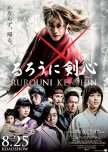
This review may contain spoilers
Killing Gives Birth to Hatred, and Hatred Kills In Its Turn
Himura Kenshin is a samurai and former assassin who has killed countless times. He soon discovers that each time he kills, it costs him a piece of himself.Vowing to live by a new code. A code in which he refuses to kill, Kenshin becomes a very unorthodox and yet inspiring character who uses his incredible fighting skills to help those who can't fight or defend themselves.
The Wanderer finds himself coming across young Miss Kaoru who owns a fencing dojo. Her dojo is wanted the new town bureaucrat who finds that in the new Japan, money is power. Not the samurai. He buys what he wants, and sends his own paid thugs and assassins to deal with those who refuse to sell.
Kenshin finds his new vow tested to its limits. For someone who has killed countless times, what's one more? And what does it matter if it's done to protect or save someone?
The fighting choreography is probably the best I've ever seen. The speed and skillset of each move is so lightning-quick that if you blink, you'll miss a sequence.
And yet this movie is so much deeper than a mere "samurai/martial arts" film. It's about love. It's about redemption. And it's about realizing that it's never too late to change. "No one is not worthy" Kenshin reminds one of his opponents. He's not only speaking about his foe, but also reminding himself that he's not lost.
The best pearl of wisdom is spoken to the high police official who believes that Kenshin is insane for applying a code that--in his mind--is ludicrous and can't possibly work. Kenshin replies, "Killing gives birth to hatred, and hatred kills in its turn. To break that chain, I carry a sword that will not kill." Indeed, Kenshin carries a blade that is backwards to help him prevent killing.
This series is simply a work of art. It has mystical elements, bordering on the "superhero" genre, but at its core, it's about the power of justice. There are elements of humor as well as a lot of flamboyance, but I believe that this is intentional, as I'm guessing that manga series it hails from is much the same.
I watched "The Beginning" and "The Final" before Netflix finally gave us the other three films. So far, none of these films have disappointed me at all. Two hours and twenty minutes seem to fly by.
Was this review helpful to you?
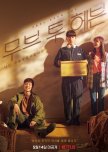
This review may contain spoilers
Like a Yellow Box, All of the Important and Beautiful Elements Can Be Found in this Series!
"Move to Heaven" is a little gem of a series that is fulfilling and uplifting in its short 10-episode story arc. The show is like a yellow box that has all of the important things in it, leaving nothing out, and putting no extraneous or unnecessary plot devices into it.The story is about trauma cleaners. Don't know what trauma cleaners are? Neither did I until I watched the show. Trauma cleaners are hired to go into a deceased's dwelling and clean it. Sometimes, it is not very glamorous, especially if the body of the deceased has been there for an extended period of time. But the key element of the job is to collect those important and necessary items that the deceased has left behind and give them to a relative or someone who was important to the person who died.
Han Geu-ru--who is masterfully portrayed by Tang Joon-Sang and should win every actor award that he's nominated for--is a 20-year-old boy with Asperger's Syndrome who is gifted with unique and special insight. Not only is he able to remember anything with a momentary glance, he is able to piece things together in order to learn more about the person who died. Of course, Geu-ru's world is strictly ordered, and any deviation from that order brings him into hysterics.
After his father suddenly dies from a heart condition, Geu-ru is put into trial custody under his uncle, Cho Sang-Gu, a man who's just gotten out of prison and is an ex-MMA fighter. Cho Sang-Gu is rough around the edges, to say the least, and the last thing he is initially interested in, is taking care of a nephew he doesn't give a hoot about from a brother he hated and despised. Part of the beauty of the story is in how these two grow closer together.
Move to Heaven reminds me a little bit of "Highway to Heaven." It seems like the kind of show Michael Landon would have done. The show runs much deeper than two men packing up items. In each episode, we learn how the deceased lived. There are some truly though-provoking stories of people--who may seem unremarkable--but end up being remarkable in their own, unique ways, that in real life, might not garner much attention. But we quickly learn the invaluable truth" Every life is precious. And every life has a story to tell.
Don't be surprised if a number of episodes has you reaching for a tissue or a hanky. There are many beautiful moments that will have you doing just that!
The story implores people to think about how they treat others. To think about what is really important. We see our share of greedy, selfish, and vindictive people who clearly don't give a hoot about their fellow man. Even when that fellow man is a relative. The story begs us to prioritize and remember, not only WHAT is really important in life, but WHO!
I was more than happy to see that the writers seemed to leave the door open for a second season. Ten episodes went by a little too quickly for me. But it's also a series that I loved so much that it invites repeated viewings.
In short, the world desperately needs more shows like this one!
Was this review helpful to you?
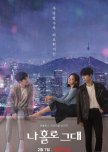
This review may contain spoilers
"Ships Are Safe in the Harbor, But That Is Not What Ships Are For!"
This is a fascinating character-driven series that I feel that many people will be able to relate to. So many people have suffered unimaginable suffering that they choose a life of solitude in order to prevent something like that from ever happening again. In short, the "defense mechanism" kicks in and the walls go up.We have two such characters in Nan-Do Ko, and So-yeon Han. Nan-Do is so traumatized by his mother's suicide, that he prefers a world of computers. He locks himself away, immersing himself in his latest project: an AI.
So-yeon is also traumatized, but for another reason in which her memory blocks out the event and also causes her to have facial-blindness, also known as prosopagnosia. In short, she is incapable of recognizing someone by their face. To her co-workers, she comes off as cold and rude because of this.
Little do we know that Nan-Do's invention brings a light to So-yeon, who is pretty much a social outcast. She spends her free time up on the roof of her apartment building, drowning herself in alcohol...her only means of coping with an essentially empty life.
We also find that there is much more to the story than meets the eye, as a tragic event is responsible for Nan-Do and So-yeon's current states of self-loathing.
So then, how are two anti-social people able to come together? You can only imagine the bumps and pitfalls of two people ineptly attempting to navigate the social awkwardness that exists between them, despite their obvious feelings for each other. Uniting them is Holo (Nan-Do's AI) who is only able to express himself honestly as well as unconditionally. In short, he is what many humans aspire to be--not only for themselves--but also for each other. Holo is the ideal version of the best version of a person, no matter how unrealistic he may be.
Love is the simplest thing in the universe, and yet our egoic minds make it the most complex thing in the universe. It requires us to take a chance. It requires us to have trust and faith. And it requires the ultimate form of courage: to be absolutely vulnerable.
Would people love to have their own "Holo?" Of course! But that is not a relationship. It's a fabrication for those who wish to play it safe; for those who do not want to risk being hurt; for those who wish to remain safely entrenched within their walls; for those who prefer to remain in the harbor. It's funny and sad how much our technology today has crippled people's ability to communicate genuinely face-to-face.
"My Holo Love" is only twelve episodes long, but they are rock-solid episodes! I was grateful that the writers didn't attempt to stretch things out.
Performances are fantastic across the board. Especially from Hyun-Min Yoon, who must be given the highest accolades for being able to deftly play two distinct characters. That is not nearly as easy as many people might believe.
My only issue was that the "stage" was almost too small. Such a technological breakthough would not only bring notice from a rival company as well as local law enforcement, but would easily bring the scale to nationwide attention. The National Intelligence Service as well as the government would undoubtedly be involved as well. Still, this is a minor point as the story is well written.
I was also pleased that we didn't get the typical, cliched storylines involving the romantic aspects of Nan-Do and So-yeon that tend to flood most Korean romantic dramas. It not only felt fresh but also much more realistic. I'm glad that there are writers who are still able to think outside the box in this regard.
If you want to immerse yourself in a wonderful series, you really can't miss with this one!
Was this review helpful to you?

This review may contain spoilers
Rock Solid Romantic Comedy With an UpLifting Message!
This is my first foray into Filipino cinema, and I wasn't disappointed. A great story and wonderful chemistry between Kathryn Bernardo and Daniel Padilla make this a wonderful film. Little did I know that these two have collaborated on several movies and are an "item" in real life. Makes sense.Jackie is an angry young woman who doesn't like her life or anyone in it. Her dream is to go to New York to study photography in order to leave home. However, she is unable to stay out of trouble and ends up in jail. Her mother pleads with her father to let her come to a small, rural village to do some volunteer work for a week. Her father relents, against his better judgment.
Kiko is a responsible young man, who finds himself caring for his younger siblings while his irresponsible mother is out galavanting with any man she can find. He is also one of the coordinators for the program that provides help to the village.
Jackie sees only what has been done to her. In short, she plays the victim. One can understand her anger and resentment once her mother confesses what happened to her when she was young, but Jackie has trapped herself in a miserable situation. Playing a victim will always do that. Kiko, however, who has a number of challenges of his own, elects to fight through them. He doesn't play the victim, which demonstrates why he's a much stronger and more mature person.
Of course, Jackie is resistant to the volunteer program, and even devises plans to escape. Once locked in, she finds herself in a village without electricity, so she can't be on her phone 24/7 as she likes.
I'm a former Peace Corps volunteer, and there is nothing quite like having all of your luxuries and comforts stripped away, which forces you to deal with whatever is in front of you. Jackie learns this lesson as well. She learns quickly that there are people out there with much tougher situations than she's got. In short, she finally begins to mature and grow up. In short, service to others can induce a powerful healing, which is exactly what Jackie needs.
The film is truly beautiful in how the volunteers work with the villagers. So much of it reminded me of my own service. However, the film doesn't end there. As one easily surmises, it becomes evident that Kiko and Jackie have developed feelings for each other.
It is here that I wish the film hadn't decided to use a cliched scenario to set up the "big ending." Too many films do that. I thought that the confrontation between Kiko and Jackie, when he didn't show up for the wedding, would have been perfect, followed by family resolutions after that. I would have been much more practical and unique. However, I can't complain as the movie still works very well. Still, my heart (and my favorite part of the movie) is when they are together at the village.
And I also have to love one of my favorite songs from my high school days, Starship's "Nothing's Gonna Stop Us Now" and how it's used so brilliantly. I'm looking forward to watching more films like this one!
Was this review helpful to you?

This review may contain spoilers
Dare to Fulfill Your Dreams!
There is only one person who stands in the way of fulfilling your dreams: you. Anyone who tries to be an obstacle to your dreams is probably not someone you'd want to be in a relationship with. The person you do want to be in a relationship with is someone who believes in you; not only will they not stand in your way, they'll encourage and empower you to do whatever it takes to make your dreams come true.Ethan is a young, hot-shot producer of shows. He's eagerly awaiting a promotion to production manager, that he feels that he's entitled to and has earned. However, to his disappointment, the job is given to someone else. He's told that the one area he's not very good with, is working with people. He's sent to Bacolod, a small town where he's told that if he can produce a successful show, then he will get the production manager job.
Audrey is a warm, caring young woman who dreams of making shows. She uses her small video camera to record everything for her boyfriend, Tristan, who has been comatose from an accident for over 150 days.
We learn that before the accident Audrey had a chance to go to Manila to learn about making shows. Tristan, of course, objected. In fact, we quickly find out that Tristan is a very controlling boyfriend who spends much of his time telling Audrey, "what to do" and "what not to do." However, it is clear that Audrey loves him...until she sees love for what it truly is!
Love is never about control. It is never about possession. It is about giving the other person the freedom and the space to be who they are. Ethan shows Audrey this type of love. Audrey, of course, is torn between her newfound love for Ethan and being true to Tristan.
Now, one might think that things become a bit cliched at this point, but that doesn't really happen. What makes this story work so well is that Ethan demonstrates and unconditional and selfless character who will simply do the mature thing; the right thing. They say that love conquers all. Well, Ethan is certainly an example of this.
There are a number of touching moments throughout the film, and I love the fact that Tristan is shown as being a "bad" guy. He's not. Despite his ignorance, it's hard not to sympathize with him.
The performances are all first-rate, and you end up feeling good about having watched this film. While many people believe that love is about being true to your partner, it's even more important to be true to yourself. And never let anyone or anything stand in the way of your dreams!
Was this review helpful to you?

There Is No Greater Purpose Than Service To Others!
As gentle, as simple, and as sweet as the gerbera flowers depicted in this movie, this little romance shares all of the beautiful qualities of those flowers. A vast array of colors and meanings, the gerbera flower, in its short lifespan, is able to convey the full spectrum of unconditional love. After all, it’s not how long you live those matters, but how well you live!This is a touching story about two people, both of whom are terminally ill. Hayasaka Akito is standing on the roof of the hospital, obviously contemplating suicide after learning that he has a year to live when a tumor is discovered in his heart. However, something catches his attention. A young girl (Sakurai Haruna) sitting alone on a bench on the rooftop, drawing in her sketchbook. It’s enough for him to pause and wander over to meet her. Thus begins an especially keen and poignant story of love, friendship, and above all, service.
Akito learns that Haruna has an extremely rare condition, and she has only six months left to live. What baffles Akito is Haruna’s attitude as she tells him that she is not afraid to die. Of course, he begins to visit her often, and he learns that he is her sole visitor. Seeing her bright and cheerful personality, despite her situation, he vows that he can never tell her about his own condition. His action is selfless as Akito realizes that virtually Haruna’s entire life has been mired in pain. He chooses to do all he can to bring some spark of joy to the last months. In this, he more than succeeds.
The true “gem” of the story is that secrets never remain secret for long. It isn’t until after Haruna has passed away and Akito is struggling to fight off the disease that will soon inevitably take his own life. But not before learning that the secret of his own condition was discovered by Haruna early on in their friendship. Determined to maintain Akito’s secret as well as the unconditional love and gratitude for the gift he gave her, she made her own vow to not let him know that she knew. Akito viewed Haruna as an angel, when in truth, both were angels to each other. Akito carried Haruna in Life, and Haruna carried Akito in Death.
It's been stated that there is no greater gift than simply being there for someone. The exchanges between Akito and Haruna are incredibly sweet without being melodramatic. There are no demands for sympathy or sorrow. Each learns to simply be in the moment for each other. Each learns to simply be there for each other. And each learns that there is no love without friendship or unconditionality, and that is the true beauty of this story. The magic of unconditional love. And even though Haruna conveys her love to Akito through the gerbera flowers, we also know that no words are necessary, and she knew that he loved her as well. Actions speak volumes.
Nagase Ren and Deguchi Natsuki have real chemistry on the screen. It’s conveyed in their eyes and smiles, which is a big reason why the story works so well. My other favorite character was the woman in the flower shop.
Love is actually very simple. We’re the ones who make it complex, no thanks to the egoic mind that loves to put conditions on everything. This film makes me appreciate the simplicity of love, much like the simplicity of the gerbera flower. Keep some tissues handy! You might need them!
Was this review helpful to you?
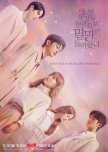
This review may contain spoilers
A Truly Loving And Unique Romantic Series About Life Itself!
What is the difference between creation and destruction? Is there a difference? Can one exist without the other, or they merely two sides of the same coin. For creation to occur, there must be destruction, at some point, and the same can be said of destruction. A star is born from material from a supernova, which is the death of a star, which provides the basic building blocks for creating new stars.In The Lion King, we get a similar explanation for the Circle of Life. Lions eat the zebras, but when lions die, it creates the necessary components for zebras to be able to live.
It has been said that “God” is the Alpha and the Omega, as well as being neither the Alpha nor the Omega. In the Hindu religion, you have Vishnu (God) who creates Brahma, which is the creative force and Shiva as the destroyer. In short, what this is about is Life itself. And this is what this series is about.
Tak Dong Kyung is a young book editor who finds out that she has an inoperable brain tumor and that she only has a few months to live. A young woman with her whole life ahead of her, in her anger and despair, wishes for doom to fall upon the world. What she doesn’t anticipate is Doom responding. And much to her surprise, she finds herself the object of Doom’s interest. He is the destroyer, the entity who makes things disappear, as he puts it in order to maintain the balance of Life. However, Doom’s response plays an integral part in his story as his fate as well as Tak Dong Kyung’s are now tied together.
Doom promises Tak Dong Kyung that the remaining 100 days of living will be painless so long as she wears a small, red, string bracelet. The more time that Doom spends with Tak Dong Kyung, the more he becomes enamored with her, and she with him. As an entity, he has no need to eat or sleep, and he is also able to hear the thoughts of people around him. He also professes that he is incapable of love, although we begin to doubt this claim as the story progresses.
Meanwhile, a lone, young girl occupies a small hospital room, and she appears to be ill. However, we soon learn that she is the one who created Doom in the first place, and she has a mysterious pot with fertilizer but no plant. She waits patiently to see if it will bloom for her Garden. The girl represents “Life” or “Vishnu” or “God.” She represents the Observer and the Observed. Her sole desire is for the happiness of humans and nobody—not even Doom—is beneath or notice or her love. She recognizes and even acknowledges that Doom is a necessary component of Life, but even Doom is given the greatest gift: freedom of choice. He can choose to remain as Doom or “fall” and eventually become human.
Meanwhile, Tak Dong Kyung, who appears to be a strong woman, finds herself facing her own mortality, and it is with Doom’s help—despite him being a force of destruction—still possesses wisdom. As with many people upon finding out that she has a terminal disease, Tak Dong Kyung runs away, and vows never to love anyone. Even Doom knows that this is a supreme act of cowardice and that a person who cannot love, is essentially dead already. This forces Tak Dong Kyung to finally cry out, “I want to live! I want to live and love everyone!” which is an incredibly touching and powerful scene.
Equally powerful is the moment where Doom and Tak Dong Kyung must make a choice: either she dies and secures his place as Doom, or she lives, and thus makes Doom inconsequential or non-existent. Doom sweetly takes the burden from her, as he states, “I am here to save you and to ensure that you live.” And in an act of supreme, unconditional love, Tak Dong Kyung is spared the awful prognosis that had awaited her. But, at what cost? Before he disappears, Doom implores her to live and be happy no matter what, and she does her absolute best to do this.
Having faced her own mortality, Tak Dong Kyung has acquired some Life wisdom of her own, telling her indecisive friend, Na Ji Na, that she doesn’t need more time, she needs courage because you never know how much time you have left. And perhaps, for the very first time, she is able to open up and profess her love for Doom as well as for her family. It’s ironic how many people in this world are literally afraid to love, and yet, it is the only way in which true happiness can be experienced.
Aside from being an incredible love story, this series is a deeply moving and engrossing spiritual journey as well. “God,” “Doom,” and “Tak Dong Kyung” make up the trinity that exists. We find that “God” is not fearful or vengeful, nor is She a dictator requiring unswerving loyalty and obedience. She is the Loving Mother who only desires the best for all humans everywhere. And her love is no less even for those aspects—like Doom—who are simply there to be a vital process of Life itself. She tends a Garden of a sea of flowers, which is a representation of all humans. She is sweet and loving, but also non-interfering, knowing that each person must walk his/her own path. Such is the power of the freedom of choice.
Bo-Young Park is one of my all-time favorite Korean actresses. She was among the first I experienced when I began my foray into K-Dramas, and she’s never disappointed. First with “Oh, My Ghost!” and then “Strong Woman Do Bong Soon.” She’s fearless in her display and expression of emotions. What she feels, we feel. She can also be cute and sassy.
While the rest of the cast is superb, Seo In Guk (Doom) and Jung Ji So (“God) are equally dynamic in their respective roles that truly make this series work.
This isn’t just a feast for romantics, but a magical journey that just might give you food for pause regarding your own beliefs regarding Life and death. Life has no opposite. The opposite of Death is Birth. Life is endless.
In truth, I’ve never seen a series like this one, and it certainly did not disappoint. The writing, directing, and acting were all first-rate. It is a truly touching, poignant, and moving experience to watch this series. And perhaps, the series begs the viewer to ask the question: are you living Life? Or are you simply caught up in the current of Life? Yes, there is a difference.
Was this review helpful to you?
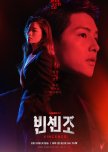
This review may contain spoilers
Impeccable Series--Nearly Ruined by Writer Park Jae Bum!
I’m not sure how many times I have to repeat myself. I’m a writer of eight novels, and one of the most basic elements of writing is that you never sacrifice character for the sake of the plot. In other words, you don’t make a character do something that goes against the character in order to make the plot work. And writer Park Jae Bum makes a very rookie mistake in Episode 19 that carries over into Episode 20.For the most part, Vincenzo is an impeccable series that is nearly flawless until those terrible 20-25 minutes—the end of Episode 19 and into Episode 20. We are extremely fortunate that this doesn’t ruin the series. As I said in the series “Mad For Each Other,” if you ruin the ending of a series, you destroy the series itself.
Vincenzo is a character on par with Jason Bourne or dare I say it—Batman (the comic character, not the live-action depictions) in which he’s like a grandmaster chess player. He’s always two or three moves ahead of his enemies. He’s also a master of assessing a situation and making the smart choice, not to mention his nearly infallible ability to predict what will happen next based on his enemies’ last move.
Choi Myung Hee has just arranged for herself to take the fall for Jang Han Seok. Despite the fact that we know why she’s doing it, it should be equally obvious to a character like Vincenzo. And yet, neither he nor Hong Cha Young can see the obvious: that it’s to get Jang Han Seok out of prison. That was rookie mistake #1 by Park Jae Bum
Jang Han Seok has abducted Hong Cha Young and Vincenzo is purposely brought to Jang Han Seok’s house in order to kill him. During the ensuing struggle as Jang Han Seok’s brother—Jang Han Seo—jumps him. Rather than helping Jang Han Seo subdue Jang Han Seok—who has a gun—Vincenzo rushes to free Hong Cha Young instead. Vincenzo would never do that. He would realize that the best way to keep Hong Cha Young’s safety—as well as Jang Han Seo—is to help Jang Han Seo take out Jang Han Seok. Now, if in the ensuing struggle, Jang Han Seok manages to escape, that’s all right. But I sighed with disgust when Vincenzo rushes over to Hong Cha Young instead. He would know that the best way to protect her would be to disable and take out Jang Han Seok. That was awful. And again, it’s something Vincenzo would never do. It goes against the intelligence and nature of the character himself.
Things briefly go from bad to worse as Vincenzo, who is now tending to the wounded Hong Cha Young, is literally watching the two brothers struggle with the gun—and only a few feet away—he still doesn’t rush to help Jang Han Seo. He sits and watches. Again, I was rolling my eyes with disgust at how ridiculous the entire scenario played out. It was obvious that they wanted Jang Han Seok to escape to set up the showdown for the rest of Episode 20.
As I said, the series was running smoothly, for the most part. Aside from some inconsistencies from the residents of the plaza and their fighting abilities as they go from an inability to fight to suddenly being experts, even though the so-called boxing winner can’t even throw a punch mirroring an actual boxer (a true boxer would know how!) the series runs like a fine oiled machine.
One more small issue--which most movies and shows take extreme liberties--is moving the gold bars. We see the bars being put into a piano, taken around in pockets and bags, sometimes 3-4 bars at a time. Gold bars weigh over 27 pounds each! (12.4 kilograms). While it made for some funny moments, it was highly unrealistic.
It's difficult to pen down the actual genre of this series, which often plays out like a black comedy and then transitions into a drama-thriller and then back again. I’ve marveled at the Koreans’ ability to fluctuate and do it seamlessly. It speaks to the genius of their writers, despite Park Jae Bum’s lapse in judgment and writing ability.
Vincenzo is a Korean-Italian consigliere—essentially one of the highest ranks in the mafia aside from the head man himself. He makes no apologies for his methods of dealing with those who would prey upon the weak and the helpless, and he brings his own sense of “justice” to bear against anyone—from lowly thugs to those sitting in power, bathed in corruption. Little do these people in power know who or what they are up against, nor do they realize what Vincenzo is capable of until it’s too late. It’s like watching very good chess players who think they can hold their own—finally meeting their match against a grandmaster. Vincenzo easily exposes their inabilities, and they find out soon enough that Vincenzo isn’t someone who makes idle threats. He means to do exactly what he says he’ll do. Jang Han Seok and his nasty den of lieutenants look at Vincenzo and laugh as though he’s just some character in a movie. But he outplays them and outdoes them at every turn.
“24”’s Jack Bauer—a special field agent for the Counter-terrorist unit once tells a panel of senators, “It’s sad that we live in a world where someone like me is necessary to do what needs to be done.” Vincenzo is of the same ilk. The higher-ups in corporations and political machinations believe they are all but untouchable and that they can do whatever they want. Someone like Vincenzo is able to prove to them just how wrong they are. But it also takes someone like Vincenzo to deal with them in complete and unforgiving ways.
I have always marveled at characters who are smart. I love Jason Bourne because of his ability to outthink his opponents. Batman is the same. And Vincenzo has those same qualities. Oh, he can fight and hold his own, but it’s his wits that make him formidable and such an iconic character. Song Joong Ki masterfully plays Vincenzo—who at times—seems light and almost playful, and other times as an absolutely scary opponent you would never dare cross if you understood him and what he’s capable of doing. He doesn’t play Vincenzo as a simple thug. And despite his background, Vincenzo becomes attached to the people of the plaza and will do whatever it takes to protect them. He calls himself a “villain” and yes, he often comes across that way, but he’s essentially a good man who simply finds himself using terrible methods to get the job done. Much like Jack Bauer, as I stated above.
The entire cast was nothing short of fantastic, and if it had not been for the major letdown of those 20-25 minutes, this series would have easily been a “10” for me. But, alas, those minutes put a big dent into a story that was running along so smoothly and so effortlessly. It’s just too bad that the ball was dropped temporarily. Still, it doesn’t torpedo the series, and it’s definitely worth a look. It’s not as great or as tautly written as “My Name” or “Stranger” but it’s most certainly good enough.
Was this review helpful to you?

This review may contain spoilers
South Korea is the New Hollywood!
All Hollywood can do anymore is give us CGI-fest films with no depth in character or story, or remakes that are almost all worse than their originals. Typically, the films tend to mirror the demands of their audience; people who can barely sit through anything that actually requires some attention.Korea gives us a great space story that is a bit of a mixture of Wall-E, Firefly, and Blade Runner. The film also gives us a great balance of story, character, and action. Why does the story work so well? Because like all great storytellers, they focus on the story and the characters.
George Lucas once stated, "a film with special effects and no story is a pretty boring thing." Funny how he would actually end up going against his own proverb, and it is also true of what has happened with much of western filmmaking, as stated above.
The film also has a lot of heart, which will make the viewer all the more appreciative that it isn't just an action movie. This is enhanced by veteran actors like Joong-Ki Song (Descendants of the Sun) and Tae-Ri Kim (Mr. Sunshine) as well as Jin Seon-Kyu.
The movie isn't perfect, but if you want a good story, some laughs, and some great action sequences, you won't be disappointed.
Was this review helpful to you?
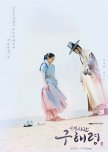
This review may contain spoilers
Fear of Change
“Rookie Historian Goo Hae Ryung” is a simply delightful series tackling the time-long theme of dealing with change. History is wrought with periods where the “old guard,” the traditionalists, the people who believe that things are working when they no longer are, battle against those who seek to embark a more effective way of doing things.Some countries, throughout history, endeavor to fight and even change the course of history by seeking to eradicate those trailblazers who bring about different ways of doing things. The irony about change is that Life IS change, and those who refuse to change will eventually be run over by it.
Goo Hae Ryung is a very progressive woman for the time period: Joseon in the mid-1800s or so. She doesn’t seek to get married, and invariably enjoys reading books to enhance her knowledge. When openings for female historians opens up at the palace, Goo Hae Ryung jumps at the opportunity. However, she knows that she will be tested by the male-dominated culture and those who firmly believe that women have absolutely no business educating themselves.
The ”historian” position is a fascinating one. It’s a branch of the Office of Decrees whose job is to objectively document everything said and done by the royal family. A historian is always present during political meetings and even everyday activities. Their goal is to make sure that the truth of what happens is persevered and not doctored or altered in any way. Their job is such that not even members of the royal family or other members of the government are allowed to even read what is written down. This is an intriguing position given that historically throughout the world, history is always told by the victors and it’s never about truth. For if it were about truth, then both sides would need to be told. Seldom does this ever happen.
Prince Yi Rim is the youngest son of the royal family. He’s basically isolated in his own housing and has virtually nothing to do with the day-to-day governing of the country. In fact, he’s purposely kept away from such things. His true delight is writing romance novels under a pseudonym, and it’s here that he initially befriends Goo Hae Ryung, even though she has no idea that he’s royalty. A funny and slightly tense friendship blossoms.
As with so many Korean dramas, there is far more than meets the eye as the story unfolds. We find out that a small town came under attack by the current king, citing Western influences in science, education, and medicine where those involved were seeking to overthrow the current regime. Of course, behind so many kings in history, the true power rested with Second Chancellor, Min Ik Pyung. Who fears the coming change so much that he implemented a coup against the previous king and put the king’s brother on the throne whose own policies mirrored his own. And so, those who’ve been put down seek to rise up and put the only true member of the royal family, on the throne: Prince Yi Rim.
Little does Goo Hae Ryung realize that her own origins stem from the same place and time as Prince Yi Rim’s. Both seek to find out the truth about their origins and how and why they find themselves at the very heart of the conflict. And as they struggle to find the truth, a sweet, loving relationship blossoms.
Goo Hae Ryung is no wallflower, which is what makes her so appealing. She isn’t afraid to initiate contact. In fact, she kisses Yi Rim first! She also has absolutely no problem speaking her mind about things. She even becomes mildly flustered when she realizes that Prince Yi Rim has no real skills to speak of outside of his ability as a writer. She even jabs him with that, stating, “you think you know everything about women!” Clearly, he doesn’t.
Cha Eun Woo gives Prince Yi Rim boyish qualities. This isn’t a slight against the character. It’s simply a perfect interpretation of a man who’s seen and experienced virtually nothing in the world. He has a sweet smile that often causes Goo Hae Ryung to laugh and chuckle. It’s a smile filled with innocence and naivety, and it fits him well. However, as Prince Yi Rim begins to learn more about what is really going on around him, we find that he’s a much stronger man than even he realizes.
Shin Sae Kyeong gives us a Goo Hae Ryung who is progressive and strong but also gives us a very feminine woman. She’s sweet, loving, and it’s obvious that she cares deeply for Prince Yi Rim as well as for uncovering the truth. She doesn’t waver in her principles or ethics about doing what is right and seeking to uncover the truth about what happened 20 years ago to the dethroned king and the historian who was executed for refusing to give up his daily record (his book of recorded discussions and events).
What made the series all the more effective was the fact that there was real chemistry between Cha Eun Woo and Shin Sae Kyeong. They both seemed to enjoy their prospective roles and interactions a lot!
The series’ theme is as ancient as history and time itself. There have always been those who refuse to embrace change. Even today, there are governments and regimes struggling to hold onto a past and a way of doing things that is no longer effective. Throughout time and history, many people have been killed for seeking to embark upon change. This is another reason why trailblazers are among the most powerful and courageous of people; those who “get the ball rolling” even if it costs them their lives. Goo Hae Ryung is such a person and an inspiration to many.
Was this review helpful to you?

This review may contain spoilers
Why Autopsies Are So Necessary!
This is a fascinating look into the jobs of coroners and forensic scientists in Japan, where the fewest amount of autopsies are recorded of all developed countries in the world. Most deaths reported as "accidental" or by "natural causes" are never autopsied, thus leaving the door wide open for murderers. You can't help but speculate how my deaths might be attributed to murder. Most bodies are cremated before they can ever reach an autopsy table, and there are many hurdles that must be jumped through, such as getting family consent.Misumi Mikoto is the idealist coroner who firmly believes that her job brings piece of mind as well as closure and truth to the cases she works on. She works at UDI (Unnatural Death Investigations), a company subsidized by the government. They don't necessarily work on police cases but as a private company that is paid by people who want further investigations done. She is the #2 coroner with a troubled past. While her job doesn't pay much, she's very good at what she does. She also tends to wear her heart on her sleeve.
Mr. Nakado is the #1 coroner of the group, and we find out that he's been suffering in anguish for over 8 years since his girlfriend was found dead in a scrap pile. He somehow performed the autopsy himself (not sure how anyone would be able to do that). After finding a "goldfish" imprint inside of her mouth, he firmly believes his girlfriend was murdered and possibly by a serial killer. He tries to check every body he can find for the same "goldfish" evidence with the hope of catching the killer. He barks at everyone, and is notoriously renowned for calling people, "stupid." He's incredibly smart and gifted despite his sour demeanor. He reminds me a little bit of Dr. House.
Finally, we have Kube Rokuro who is the new part-timer, who has a desire to be a forensic doctor. However, we quickly find that he's working at UDI under false pretenses (selling the secrets and stories of what happens at UDI) to a local newspaper, which acts more like a tabloid. However, after finding himself engrossed in the job as well as being smitten with Dr. Mikoto, we begin to wonder how Rokuro will be able to get out of his dilemma, if at all.
The series is an important one. Japan is a generally peaceful country where people try their best to live in harmony. They don't like to "rock the boat" and will do nearly anything to maintain that harmony, even it means avoiding any kind of confrontation. However, true harmony can never be achieved by turning your back to what is going on; by avoiding confrontation. How can harmony be experienced at the expense of others? It can't be. It's an impossibility, and this is largely the reason why this show exists. With only 170 coroners in Japan, they're desperately trying to get more as well as to change the government policies surrounding autopsies and why they are so vitally important.
While the serial killer story was a fascinating one, my favorite episode was actually the bullying, or as the boy rightfully called it, "Death by Bullying." This was an especially powerful episode that brings a world-wide problem to the forefront. The UDI group race to solve the "murder" of a young high school teen in order to prevent the death of another. However, we quickly find that nothing is as it seems, and the school as well as the other students involved, realize their horrible mistake; allowing the bullying to happen. Yes, where bullying takes place, everyone is involved, and everyone is responsible. I truly hope people take this episode to heart.
There was only one season of this fantastic show, which is easily better than any "CSI" series I've seen, and should be given more seasons. I sure hope a second season is in the works! Not only is the science fascinating but you gotta love the people of UDI!
Was this review helpful to you?

This review may contain spoilers
A Good Series That Should Have Been Great!
“Healer” kicks off like a massive thunderstorm, and by the time it ends, it’s just a gentle rain, which left me to wonder, “What the heck happened?”Seo Jung Hoo is a man in his late twenties who is basically a sort of “hero for hire.” He has fancy gadgets supplied by his hacker partner, Jo Min-Ja. He’s hired to do any job except for murder A master at hand-to-hand combat as well as being able to evade pursuit and detection, he’s sort of a cross between Ethan Hunt and Jason Bourne. Little does Seo Jung Hoo realize that he’s soon thrown into job that takes him back to his own origins from 20 years ago.
Chae Yeong Shin is a novice reporter working for an online tabloid news company. She’s tenacious when it comes to tracking down a story, but other than that, she has no real journalistic skills at all. This is coupled by the fact that she gets severe panic attacks whenever she’s in a violent situation; attacks that incapacitate her. Of course, why she never suffers an attack during her first confrontation with Seo Jung Hoo is never explained, even when he threatens to harm her if she resists. She, too, has a tie to 20 years ago.
Finally, we have Kim Moon Ho who is Korea’s most famous journalist. He’s nothing short of a celebrity, but thanks to Seo Jung Hoo and Chae Yeong Shin, he is quickly immersed in a massive cover-up that involves his brother and their friends from 20 years ago. Kim Moon Ho is the only one who knows Chae Yeong Shin’s true connection to his brother’s wife (who is Chae Yeong Shin’s mother who believes her daughter to be dead). This sets the stage for a sort of “David vs. Goliath” showdown in which our three protagonists struggle to uncover the truth, who is pulling the strings, as well as trying to stay alive in the process!
While this all sounds intriguing, and for the first twelve episodes or so, it is, but suddenly, there are just way too many plot holes to plug up by the final episode. It lacks the tautness both of story and character that were present in such thrillers as “Vincenzo” and “Stranger.” In those series, the writers and actors knew their characters backwards and forwards. If only “Healer” could have been done with the same attention to detail, this may have been a very different series.
As you may expect, Chae Yeong Shin is like a 7th rate Lois Lane. She soon finds herself falling for the mysterious Seo Jung Hoo, especially after he saves her (fairly typical of nearly every superhero movie ever made!). She’s soon behaving much like a swooning 18-year-old. Min Young Park seems to try her best to keep a handle on her character, but too often, she goes from a journalist with some degree of professionalism to a shy, don’t touch me in front of my father, little girl. Korea is a somewhat conservative country, at least when it comes to K-dramas. Their movies are something else entirely! I guess they want you to believe that Korean women are still innocent and the property of their families. When Chae Yeong Shin tells Seo Jung Hoo that he needs her father’s approval to date (after they’ve already spent the night together!), I cringed. Is this 1950 all of a sudden?! A late twenties woman hasn’t the guts to speak for herself. Wow!
There were a lot of key missing conversations that never took place in the series that had me scratching my head. At one point, Seo Jung Hoo is overwhelmed by the death of his master. Chae Yeong Shin finds his lair and attempts to help. She never asks him why he secluded himself. So much for journalistic attributes to say nothing about someone simply showing concern. Ever after she finds out about his true identity, there’s no real conversation about it.
At one point, Seo Jung Hoo runs off to help his mother who is in danger. He’s operating in the guise of Bong Su Park, who works undercover with Chae Yeong Shin. Chae Yeong Shin finds him unconscious on the rooftop. Bong Su is a bit of a coward, and yet Chae Yeong Shin never asks why he ran off in the first place after he recovers.
Chae Yeong Shin also seems to have strange mood swings. She’s upset one moment and then she’s suddenly okay. I’ve never seen characters with such speedy recoveries in my life! In one scene, she’s nearly catatonic, and by the time Seo Jung Hoo reaches the first floor of the coffee shop where she lives, she comes bounding down the stairs with a smile on her face as though nothing had happened. I wondered if she was bi-polar!
I also found it strange when Seo Jung Hoo is set up for a murder rap, and Chae Yeong Shin sees him covered in blood, she’s initially shocked until he runs off. She never once attempts to contact him. It isn’t until a couple of days later that she finally asks if he’s ever killed anyone. So much for trust and faith, eh?
Seo Jung Hoo is a man who is in tremendous shape, literally scaling buildings and running across rooftops. He and Chae Yeong Shin stupidly decide to try and have a “normal” life, despite the fact that there has been NO resolution to their situation. Suddenly, Seo Jung Hoo is sleepy and seems to have no energy in the office workplace. Give me a break! A guy in that kind of shape is suddenly struggling to stay awake?! Even after he’s already been working those hours as Bong Su? This wasn’t just laughable. It was absolutely ludicrous! It was bad enough that someone of Seo Jung Hoo’s intelligence would suddenly decide to hang up his “cape and cowl” when the bad guys are still out there and there hasn’t been a resolution. It was an insult to the intelligence of the character as well as the viewer to buy such a cheap ploy.
I was also a little surprised that we didn’t get a final “daughter/mother” reveal between Chae Yeong Shin and her mother in the last episode. Even though it’s obvious that they both pretty much knew, I was waiting for that moment which never came.
Also, I felt that the final ploy to bring down “the Boss” at the end was a fairly cheap one. I was hoping for something bigger from “the Boss,” and a guy who seemed almost unbeatable.
Performances are pretty good in this series. Kim Mi Kyung is easily my favorite character of this series. She’s just a fantastic actress! Ji Chang Wook did a good job with what he had to work with, and Min Young Park was decent who just had too many awkward moments. One, which was at the end when Seo Jung Hoo puts out his hand to her, and Chae Yeong Shin actually hesitates to take it! Right after she does, she immediately goes into a little thing about how she can never imagine being without him. Then, why the hesitation?! It made no sense!
While the music was good, I started getting tired of the same two songs always being played after nearly every scene! The vocalizing choir really got on my nerves after just the first few episodes.
Healer is a series that was good, but it really should have been great. I know this series has very high ratings. Honestly, I guess I just don’t understand why, especially with so many problems with the script and the characters. It made zero sense not to tell Chae Yeong Shin’s mother about her daughter. You really think that kind of new would actually kill her?! If anything, it would give her some well-needed healing and hope! That was just a horrible reason!
It's sad that after 20 episodes, they still couldn’t quite get everything right. It made me wish that Hacker Jo Min Jae could have hacked into the script and done some serious editing and fixing! Now that would have been worthy of the Healer!
Was this review helpful to you?
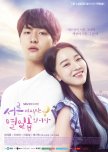
This review may contain spoilers
Don't Think. Feel!
Charlie Chaplin, in his famous speech from The Great Dictator, wisely stated, “we think too much and feel too little.” Perhaps there is nothing so powerful a tool as the mind, nor is there anything that causes so many problems. This is why Bruce Lee told his students, “Don’t think. Feel.” The mind is like a merry-go-round. All it knows how to do is think and react to everything. We all need to follow our hearts and intuition more and think less. And the biggest catalyst to getting stuck on the endless stream of thought, is playing the “what if” game.People don’t realize that when it is a soul’s time to pass, there is nothing in the universe that can stop it. There is nothing that can be done to prevent it. It is simply that person’s time. Grief, however, is a peculiar thing. It is a necessary process toward letting go and saying goodbye, and yet it can also induce a person to come up with irrational situations and scenarios; to take responsibility and blame where none have ever existed. Hence, the danger of the “what if” game.
I remember when my father passed away in an accident. Of course, I found a reason to blame myself for it, even though I had absolutely nothing to do with it at all. It took ten years of heartache and needless suffering before I realized the truth. In many ways, I could relate to Gong Woo Jin who believes himself responsible for a horrible bus accident that he believes has killed the girl he loved 13 years ago.
Gong Woo Jin lives as a recluse, closing himself off to virtually all human contact. He often ignores others and gives very clipped responses to questions. This is what happens when a person barricades themselves within the walls of guilt. The irony is that those “walls” are mere fabrications. They only exist within our own minds, and tragically, this is where Gong Woo Jin lives.
Woo Seo Ri is a vibrant young woman who wakes up from a coma after 13 years. She was only 17 when the bus accident occurred, so in many ways, she has the mindset and maturity if a 17-year-old girl. She finds herself transported into the future where everything is different. She feels like a foreigner suddenly dropped in the middle of a city without any idea about how to function. She is very much a fish out of water.
Fortunately, Woo Seo Ri comes across Yoo Chan, who also happens to be Gong Woo Jin’s nephew, and living in the same house where Seo Ri grew up. Yoo Chan is a 17-year-old high school kid who is thoughtful, considerate, and works very hard athletically. The irony is that none of them knows how they are all connected to the past, which includes the monotonal housekeeper, Jennifer, who always has wise and profound idioms and quotes to pass along. And yet, she behaves like a robot. We also find out later why behaves this way as well as her own connection to the past.
Seo Ri spends much of her time trying to find out why her aunt and uncle abandoned her at the hospital. Gong Woo Jin is simply trying to eke out some kind of existence with a design company. Hilariously, he takes measurements of all kinds of furniture so that he can create them to scale for small models, often upsetting or causing fights with people sitting on a park bench or, in one case, seeming to take liberties with another man’s girlfriend. And Yoo Chan finds himself smitten with Seo Ri and gives him a goal: if he wins the rowing race, he’ll share his feelings with her.
This is an especially touching series that demonstrates just how dire and destructive guilt can be. Woo Jin suffers severe panic attacks when Seo Ri says or does something that reminds him of what happened on that fateful day. He is so wracked with guilt that he can’t breathe or even keep his feet without struggle. There is such sweetness in the young Woo Jin and how much he adores the 17-year-old Seo Ri, even though he hasn’t a clue of who she is, and Seo Ri wearing her best friend’s name-badge only complicates things even more.
Of course, as with so many great K-dramas, what we are shown is only half the story, and when we find out the whole truth later on, we can see how unique a person’s perspective is, but also how one perspective isn’t always the whole perspective! The reveal portion toward the end of the series is infinitely touching and we can only appreciate the enormous hurdles and obstacles these two souls had to endure in order to be together.
I’ve been a huge fan of Shin Hye Sun for a while now, but in many ways, it’s Yang Se Jong’s performance that really seals things for this series. He really makes us feel the angst and pain with his eyes and the emotions on his face. I’ll wager that it wasn’t an easy thing to do, and he does this multiple times throughout the course of the series. He is so believable that half the time, I wanted to jump through the screen to try and console him. When he finally breaks down in absolute despair as he’s confessing his supposed “crime” to Seo Ri, it feels as though his very soul is screaming in agony.
I was glad that the series focused on Seo Ri, Woo Jin, and Yoo Chan without delving or contriving some ridiculous melodrama or love-triangle. The writers kept the focus on Seo Ri trying to navigate her new world, Woo Jin struggling with his guilt, and even Yoo Chan’s experiences of a first crush. All three characters are realistic, likable, and relatable.
It was stated that when a door to happiness closes, we should be looking for another door to happiness that opens. As long as a person pursues this course, happiness will be eternally elusive. As long as you believe you must be doing something in order to be happy, you’ll never find it. And when you do find it, it will be brief and then evaporate. Socrates from “Peaceful Warrior” stated, “Most of the world shares your pain. When you don’t get what you want, you suffer. And even when you get exactly what you want, you still suffer, because you can’t hold onto it forever.” The key is to BE happy. When you are able to be happy—which exists only in the moment—then any outer situation will have no power over you; it will never be able to quell that happiness that you already are. You have to BE happy, not DO happy.
And this is why Bruce Lee said, “Don’t think. Feel.” Happiness can, and never will, exist in the mind. It can only be felt and experienced within. And when you can make choices and decisions from a place of “being” you will be surprised to find that the whole world suddenly opens up around you.
13 years of suffering is what Seo Ri and Woo Jin had to undergo because of too much thinking and not enough feeling. Remember that pain is inevitable, but suffering is optional. And we must all try our very best not to get on the “what if” merry-go-round which leads to a needless, endless cycle of suffering—until we change our minds.
Was this review helpful to you?

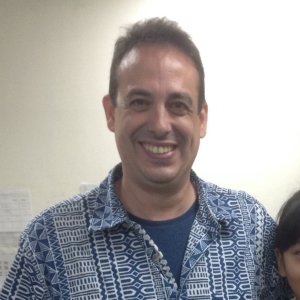
 1
1













